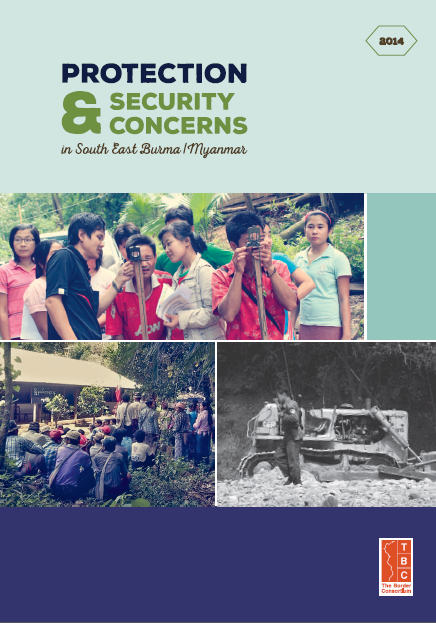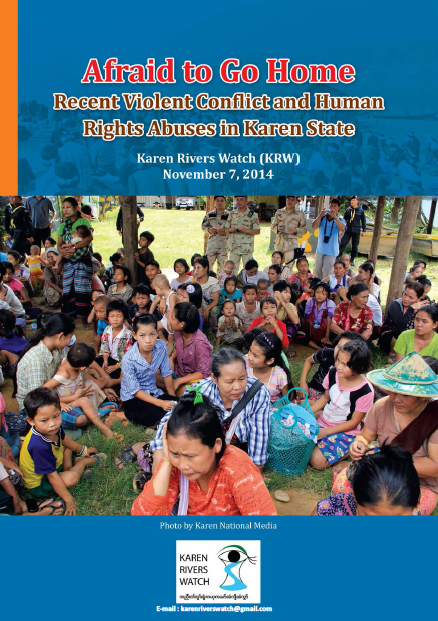Posts Tagged ‘IDPs’ (93 found)
Myanmar: A Tipping Point for Rohingya Rights?
 Two years after a wave of violence hit the region, Myanmar’s Rakhine State has become a segregated zone. Two million ethnic Rakhine live apart from 1.2 million stateless Rohingya, who are trapped inside displacement camps or barred from leaving their villages. Ending this segregation and protecting the rights of the Rohingya are necessary components of Myanmar’s move toward democracy. However, the Rakhine leadership has rejected – both politically and with force – any reintegration of the two communities, and it is seeking to exclude the Rohingya from any role in the state’s development, distribution of resources, and political representation. […]
Two years after a wave of violence hit the region, Myanmar’s Rakhine State has become a segregated zone. Two million ethnic Rakhine live apart from 1.2 million stateless Rohingya, who are trapped inside displacement camps or barred from leaving their villages. Ending this segregation and protecting the rights of the Rohingya are necessary components of Myanmar’s move toward democracy. However, the Rakhine leadership has rejected – both politically and with force – any reintegration of the two communities, and it is seeking to exclude the Rohingya from any role in the state’s development, distribution of resources, and political representation. […]
Letter to President Obama
Dear President Obama,
We are writing on behalf of Kachin Society from Myanmar and abroad, composed of (27) organizations and networks.
We would like to welcome your administration’s courageous step in engaging with the Myanmar government, including your visit in 2012 and your delivery of the important speech at the University of Yangon. It resonates with us to this day. […]
• • •Obama’s Chance to Make Burma a Genuine Foreign Policy Success
As President Obama prepares to make his second visit to Burma, it is worth looking back at the promises made to him by Burma’s President Thein Sein on his last visit in November 2012 and to assess the worth of these promises. Burma, after all, is largely seen as a foreign policy success by the current administration amid the mess of Ukraine, Libya and the threat of ISIS […]
• •Key Messages to World Leaders, International Governments and the UN Concerns and Requests Related to Humanitarian Situation in Kachin and Northern Shan States, Myanmar
The 25th ASEAN Summit is commencing from 11 to 13 November 2014, hosted by Myanmar in its capital, NaypyiTaw. Most prominent world leaders are gathering and discussing important matters affecting the ASEAN countries and, inevitably, the interconnected global arena. On this occasion, Joint Strategy Team for Kachin Humanitarian Response would like to urge the world leaders, international governments and the UN to pay attention to the following concerns and take immediate actions to fulfill the requests. We firmly believe that the world leaders, international governments and the UN will strongly support the protection of dignity and rights of the internally displaced persons. […]
• • •Protection and Security Concerns in South East Burma/ Myanmar
The peace process in Burma/Myanmar1 is at a critical juncture from which it could evolve into a transformative national dialogue or splinter into a divisive charade. While hopes for substantive and inclusive discussion about structural injustice remain, ongoing militarisation and attacks by the national armed forces2 are undermining the confidence of ethnic stakeholders. This report seeks to highlight the protection and security concerns of conflict-affected communities. […]
• • •Afraid to Go Home: Recent Violent Conflict and Human Rights Abuses in Karen State
The following report was prepared by Karen Rivers Watch (KRW), a coalition of six Karen organizations focused on the environment, women, youth, human rights and development issues. More information about KRW is provided on page 14.
This report is based on field interviews with local villagers and leaders of Karen armed groups, as well as media coverage of the recent conflict. It describes events that led to recent armed conflict between the Democratic Karen Benevolent Army (DKBA) and the combined force of the Burmese Army (BA) and Border Guard Force (BGF) in Karen State. Next, the report gives a detailed account of clashes that occurred along the Salween River in Hpa-an and Hpapun (Mutraw) districts. […]
• • •Statement of Ethnic Community Development Forum and the Customary Land Protection Committee Concerning Myanmar’s National Land Use Policy (Draft)
On November 1 and 2, 2014 representatives of more than 30 organizations of civil society and farmers networks came together in a workshop to review and analyze the draft national land use policy of Myanmar. […]
• • •Displaced Communities Await Political Dialogue in Myanmar
Bangkok/Yangon – As Myanmar’s government prepares to host the ASEAN Summit next week, conflict-affected communities are wondering if and how the peace process can get back on track. Negotiations for a nationwide ceasefire agreement are stumbling and national elections are due at the end of 2015. However, political dialogue to address ethnic conflict is essential to promote national reconciliation according to a new report from a consortium of relief and development agencies. […]
• • •Kachin Civil Society Groups Rally for Two Jailed IDPs
Kachin civil society groups held a public gathering in Shwezet church in the Kachin State capital Myitkyina on Tuesday to show their support for two Kachin IDPs, Brang Yung and Lahpai Gam, who were arrested by Burma Army soldiers in mid-2012 and allegedly severely tortured. […]
• •Press Release: U.S. Embassy Rangoon’s Ambassador Derek Mitchell’s Visit to Kachin State
Myitkyina – Ambassador Derek Mitchell visited Myitkyina, Kachin State October 25-27. This was Ambassador Mitchell’s third visit to Kachin State as Ambassador; his first visit was in December 2012 and his second visit was in October 2013. During his three day visit, Ambassador Mitchell met with more than 150 members of Kachin society, including religious leaders, local humanitarian workers, cultural historians, students, NGO leaders, political party […]
• • •










 All posts
All posts